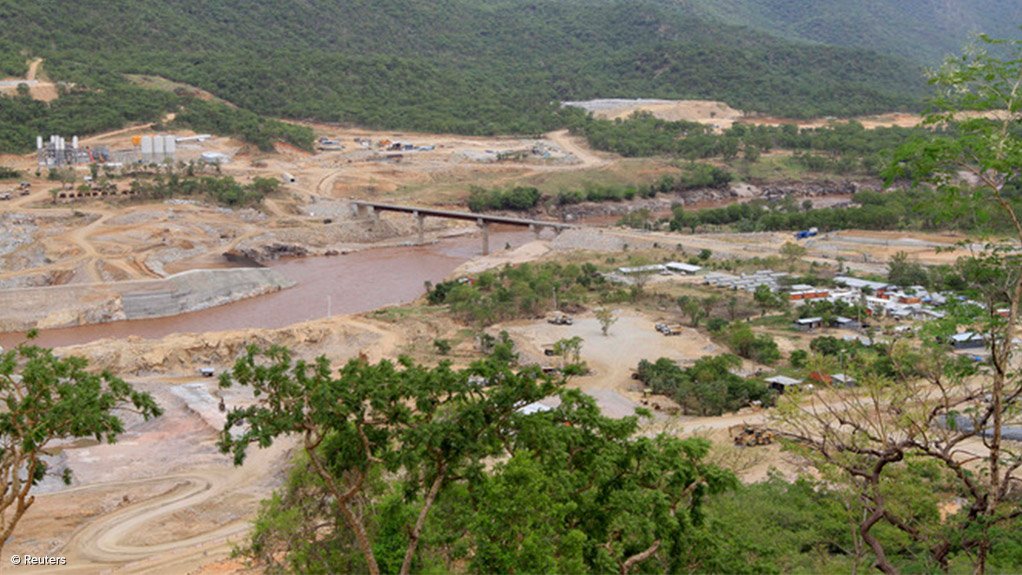The Paris Climate Summit provides an important platform for Ethiopia to showcase the steps it has taken in pursuing green economic development.
Prominent among its achievements has been its policy of pursuing non-renewable energy, including hydropower, wind energy and geothermal energy. The country can also show off its energy saving technology, water and soil conservation initiatives and the expansion of carbon free transport services.
Nearly all of Ethiopia’s energy comes from renewable sources with hydropower as the main source. The country has plan to increase this even more.
The hope is that developed economies will be encouraged to finance future renewable projects. And that this will lead to developing countries adopting strategies for low carbon emissions, as well as poverty alleviation and sustainable development.
Previous climate change negotiations have not delivered all the political and policy objectives hoped for by African countries. But this didn’t stop Ethiopia from taking action.
The country developed a climate strategy in 2011 based on four pillars.
-
Improving crop and livestock production practices for higher food security and farmer income, as well as reducing emissions.
-
Protecting and re-establishing forests for their economic and ecosystem services, including carbon stocks.
-
Expanding electricity generation from renewable sources of energy for domestic and regional markets.
-
Leapfrogging to modern and energy-efficient technologies in transport, industrial sectors, and buildings.
Ethiopia has had some success with its Ethiopian Green Economy Policy. It has managed to raise the forest land cover from about 4% of the total land in the 1990s to about 12%.
Nearly all of Ethiopia’s energy is produced from hydropower. And it aims to increase capacity by adding a further 7000 megawatts. The country is also producing geothermal energy in the Rift Valley which will generate an additional 1000 megawatts. It is currently producing wind power in the Ashegoda Wind Farm and the Adama Wind Farm. Combined, the two wind farms contribute around 170 megawatts of power.

Ethiopia still needs both financial and technical support from the international community if it is to fight climate change effectively.
Developing countries enter the debate
Between 1991 and the beginning of this century climate conferences did not place much emphasis on developing nations. The negotiating process focused almost exclusively on emission reductions by developed countries.
This began to change at the meeting in Marrakesh in 2001.
The more recent phase of climate negotiations has shifted to include developing countries. In 2012 developing countries were also asked to reduce emissions. This was to be done through adaption strategies and financial support from developed countries.
The 2009 Copenhagen Summit allowed even more opportunity for developing country voices to be heard. Debates centred on limiting global warming to no more than 2°C as well as adaption and mitigation strategies for both developed and developing countries.
The focus on developing country emissions in the Copenhagen process represented a major mindset change in the negotiations. Developing nations felt they had a seat at the table.
But most importantly, there was a focus on financing. Developed countries were asked to compensate developing countries to adapt through clean development, technological transfer and financial support.
Following this change in focus, Ethiopia and other developing countries actively engaged in international climate change summit negotiations. They emerged from being countries that lacked focus to becoming part of a bloc that challenged large emitters to do their fair share in reducing global emissions.
What to expect
At the Paris Climate Summit the talk will focus on solutions around particular themes.
Some will be based on launching technologies that will enable industries, cities, and countries to mitigate and adapt to climate change.
There will also be a big focus on accelerating private investment and climate finance. This will predominantly focus on the green climate fund and the contribution of the private sector through forest developments, geothermal energy developments and sustainable environmental development activities as well as sharing projects and knowledge share. Ethiopia will fully support the proposed carbon fees and will work for its implementation together with international community and experts.
These themes will provide a clear signal for developing countries such as Ethiopia. It will also help guide investment towards low carbon outcomes.
Developing countries hope that there will be an agreement on national plans for action from 2020 onwards. Other key expected outcomes will include financing for pre-2020 action, more ambitious national mitigation pledges and better delivery of existing financial commitments.
Developing countries will hope to use financing for several key elements. This includes: water use for agriculture, forest coverage improvement, green energy production and environmental development in general. There will be a specific focus on agriculture for a food security strategy.
Written by Mohammed Assen, Associate Professor Department of Geography and Environmental Studies and Centre for Environmental science, Addis Ababa University
This article was originally published on The Conversation. Read the original article.
EMAIL THIS ARTICLE SAVE THIS ARTICLE
To subscribe email subscriptions@creamermedia.co.za or click here
To advertise email advertising@creamermedia.co.za or click here











